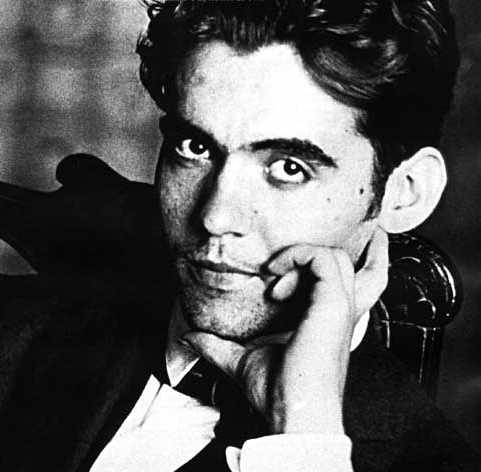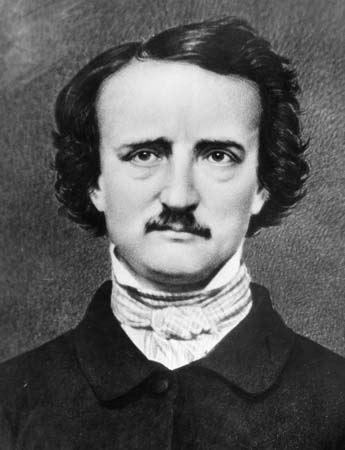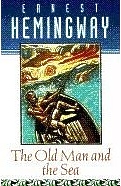In Kate Chopin's "The Awakening," the sea represents the conscience of the protagonist, Edna Pontellier. Edna is Chopin's attempt to portray the ideal woman, one who doesn't have to give herself over to the single-mindedness of simply raising her children and pampering her husband. Edna slowly realizes her own abilities and power, and struggles to free herself from the constraints of such an oppressive society. Chopin uses the sea to reflect Edna's inner turmoil and rebellion. Chopin's novel was rejected at the time, but is now a tribute to radical thinking and feminist progress.
Edna's journey is notable because it is not tragic or horrific, nor does it occur in extreme circumstances. She's just a discontent woman, who has previously been unable to admit her unhappiness. "Happily" married with three children, Edna should be enjoying her summer holiday. But when her husband returns home late one night, doting and over-attentive, the confused Edna is driven to lonely tears. She doesn't know why her discontent is making her so frustrated, but she hears the sea calling as a "mournful lullaby upon the night" (11). Edna's inexplicable depression is only slightly eased by the presence of Robert, the fun-loving, flirtatious twenty-something who spends all of his free time following Edna around the island. On their daily walks to the beach, a "soft and warm" breeze springs up (24) as they approach the sea. The clear alleviation of stress in Robert's presence is what leads Edna to her self discovery, when she slowly begins to "realize her position in the universe as a human being" (25). This was radical in Chopin's time, that a woman would think of herself as an individual, outside of her societal roles. The longer Edna entreats herself with Robert's presence, the more she finds the sea to be "seductive" and "sensual", its voice "never-ceasing, whispering, clamoring, murmuring" (26). As she embraces her womanhood and her connection with Robert, she sees herself, and also the sea, in a new way.
Edna's true revelation happens one night after a dinner party. As Edna recounts, until this point in the summer, she had been unable to swim. After lessons from nearly every person present, she still felt an "ungovernable dread" when she was in the water, always fearful unless she had the reassurance of "a hand nearby that might reach out and reassure her" (52). If we attribute this to Edna's mental state, we can know that Edna has always been afraid of being alone, and of the truth. She hasn't wanted to know the unknown, she hasn't had the desire to venture out alone. Her fear in the water was debilitating, but since she had her husband and children, and her seemingly perfect life, she didn't need swimming-- she didn't need knowledge. After her experience with Robert and in the process of finding herself, Edna wants to cast of her ignorance, her innocence, and find a way to swim. She does, and the feeling she gets is of "exultation." She wants to swim where "no woman had swum before" (53), to completely let go. Little does Edna know that that is exactly the path she is embarking upon, taking up a mantle that few women of the time had the courage to take, to make decisions based on her own desires and no others. But at this time, Edna is not prepared to leave the life she knows completely. Looking back to the shore, she feels the dreaded fear, and it "appall[s] and enfeeble[s] her senses" (54). On this evening of epiphany, Edna makes her first act of truly free will.
As Edna revels in her new-found freedom, she notes that the air is "pregnant with the first-felt throbbings of desire" (57). Until now, Robert's presence was comforting and liberating, but with her new ideals, she allows herself to see Robert in the light he has always been standing in. She begins to truly love Robert here, although she doesn't admit it until much later. Also for the first time that night, she openly defies her husband's wishes. She refuses to go to bed simply because he wants her to. She stays on the porch all night, and he, dumbfounded, accompanies her in silence and confusion. Edna's journey truly begins her. Her liberation in the sea signifies her liberation of consciousness. She begins a year of protest, self-fulfillment and discovery. She stops hosting her husbands visitors on tuesdays, because she doesn't want to. She starts visiting friends from the island, painting to make a living, and going to the races. Mr. Pontellier goes away, and the children go on holiday as well. In this time, Edna entertains male callers, buys a small house of her own, and secretly yearns for Robert. She cuts off all of her old loyalties to her husband, who follows her tracks, covering them to make sure the family appearance is upheld, never, however, suspecting adultery. Curiously, when Edna does succumb to her natural desires, she feels the guilt of betrayal, not to her husband, but to Robert, who has run off to Mexico.
Edna's freedoms hold throughout the year, until one day, Robert returns to town. She is almost wild in her desire to see him, but fearful of his response. When they finally make their vows of undying love for one another, Edna's free spirit seems unquenchable, and she is prepared to find a way to get out of her marriage and be with Robert. She explains that if Mr. Pontellier thought he had some sort of claim on her, she would laugh at him. This is, assumably, somewhat confusing to Robert, since women of the time were in marriage for life. Their love dies as quickly as it flourishes, since Robert disappears, leaving the note "I love you. Good by--because i love you." (215). Robert was unable to accept Edna's freedom the way she had. Edna's heartbreak is devastating, and she returns to the island for a final swim. She still describes the sea as seductive, never-ceasing, whispering, clamoring, murmuring, etc. She casts of her clothing, standing naked in the open air, "like some new-born creature, opening its eyes in a familiar world that it had never known" (220). The foam she describes as "serpents", the water as "chill", but, she reminds herself, sensuous. She feels it has "no beginning and no end" (221). She swims on and on, pushing her conscience off of herself until she is left with nothing. Her despair is unending, like the waves of the sea. She fittingly ends her life in the sea which had given her life in the first place. The sea is Edna's beginning and end, her joy and misery, her self and her environment.
Subscribe to:
Post Comments (Atom)










No comments:
Post a Comment